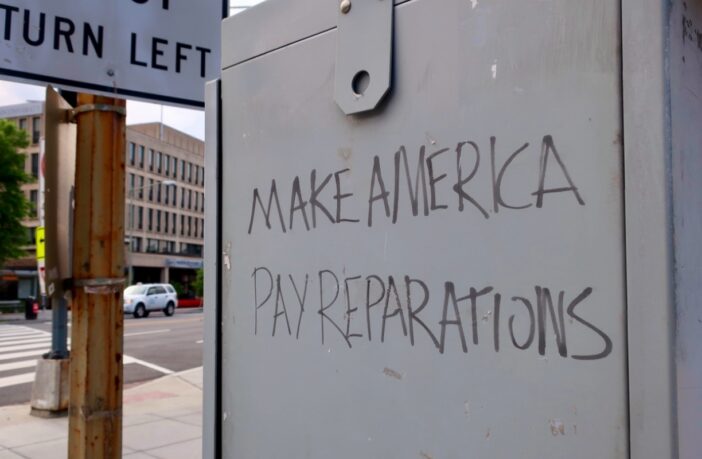by Sharelle Burt
August 31, 2024
Looks like we’re getting somewhere….
The Reparations Advisory Commission of Los Angeles released a 400-page report to sponsor potential reparations to Black residents based on discriminatory harms faced over the last 100 years, the Los Angeles Times reports.
The struggles of Black “Angelenos” were documented in the first city-sponsored reparations report called “An Examination of African American Experiences in Los Angeles.” The report was unveiled by six researchers at California State University at Northridge (CSUN) on Aug. 27, highlighting data from interviews and focus groups that included hundreds of residents – both past and present.
Within the report, laws and public policy were analyzed over the last century to showcase the effect of racial discrimination on descendants of enslaved African Americans.
“Despite the legal end of slavery, Black Angelenos continue to face systemic discrimination and inequity via legal segregation, enacted by both the state via the LAPD and the courts, as well as by the public, including groups like the Ku Klux Klan,” researcher and CSUN professor of Africana studies Marquita Gammage said.
Close to 620 people were interviewed for the report, with more than 50% being women. Twelve different types of harmful effects were documented in the repost including: traces of slavery, racial terror, the mental and physical harm from neglect, racism within environment and infrastructure, the injustices of the legal system, housing segregation, stolen labor and altered opportunity, segregated and unequal education, political disenfranchisement; the effect of an unhealthy Black family, control over creative, cultural and intellectual life and lastly, the wealth gap.
Of all the effects, three potential solutions of reparations were identified. After finding 80% of survey participants endorsed home buyer assistance, protections of appraisals to limit overpaying, and programs to address housing insecurity, Gammage suggested the city should “calculate the cost of housing inequity and launch compensatory efforts, fund and support programs that advance equity and homeownership opportunities, proactively address homelessness and housing insecurity among Black residents.”
In collaboration with the L.A. Civil Rights, the team of researchers also created a timeline within the report of federal policies that resulted in the limitations of Black rights between 1930 and 2024. W. Gabriel Selassie expressed feeling stunned by the findings of oppression levels and more so how they corresponded with everyday life. “So, you walk outside, and you open up your car door as an L.A. police car drives by. You put your things into your car, and the police car backs up,” he said.
“The next thing you know, you are in a jail cell … severely beaten. You have a court hearing and the judge dismisses the case. You have now lost your dignity, your pride, your time at work — you are essentially scarred for life.”
According to the San Gabriel Valley Tribune, the last proposal for reparations will be presented to the L.A. City Council and Mayor Karen Bass at the beginning of 2025. As many survey respondents claimed to be interested in monetary reparations, Democratic California governor Gavin Newsom approved a state budget of a maximum of $12 million on reparations legislation, however, identified programs or payments to Black Californians weren’t specified.
Other highlights from the report included Black Angelenos being at higher risk of exposure to air pollutants with direct links to city and freeway planning and development. Black residents also made up 27% of all arrests between 2020 and 2023, and 26% of all police stops between 2018 and 2023 – while only making up 8% of the city’s population. Executive director of the L.A. Civil Rights and the advisory commission, Capri Maddox, summarized the report saying, “We are not where we want to be — but we are not where we used to be.”
RELATED CONTENT: Black Families In California Fight For Land, Call For Reparations



